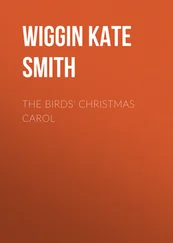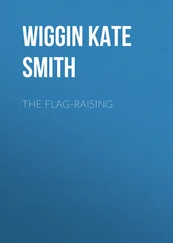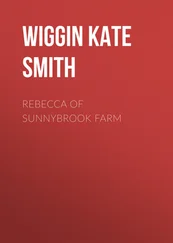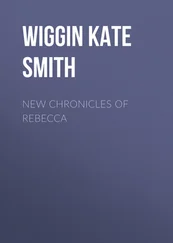Kate Wiggin - The Village Watch-Tower
Здесь есть возможность читать онлайн «Kate Wiggin - The Village Watch-Tower» — ознакомительный отрывок электронной книги совершенно бесплатно, а после прочтения отрывка купить полную версию. В некоторых случаях можно слушать аудио, скачать через торрент в формате fb2 и присутствует краткое содержание. Жанр: foreign_prose, literature_19, foreign_antique, на английском языке. Описание произведения, (предисловие) а так же отзывы посетителей доступны на портале библиотеки ЛибКат.
- Название:The Village Watch-Tower
- Автор:
- Жанр:
- Год:неизвестен
- ISBN:нет данных
- Рейтинг книги:4 / 5. Голосов: 1
-
Избранное:Добавить в избранное
- Отзывы:
-
Ваша оценка:
- 80
- 1
- 2
- 3
- 4
- 5
The Village Watch-Tower: краткое содержание, описание и аннотация
Предлагаем к чтению аннотацию, описание, краткое содержание или предисловие (зависит от того, что написал сам автор книги «The Village Watch-Tower»). Если вы не нашли необходимую информацию о книге — напишите в комментариях, мы постараемся отыскать её.
The Village Watch-Tower — читать онлайн ознакомительный отрывок
Ниже представлен текст книги, разбитый по страницам. Система сохранения места последней прочитанной страницы, позволяет с удобством читать онлайн бесплатно книгу «The Village Watch-Tower», без необходимости каждый раз заново искать на чём Вы остановились. Поставьте закладку, и сможете в любой момент перейти на страницу, на которой закончили чтение.
Интервал:
Закладка:
Kate Douglas Wiggin
The Village Watch-Tower
THE VILLAGE WATCH-TOWER
Dear old apple-tree, under whose gnarled branches these stories were written, to you I dedicate the book. My head was so close to you, who can tell from whence the thoughts came? I only know that when all the other trees in the orchard were barren, there were always stories to be found under your branches, and so it is our joint book, dear apple-tree. Your pink blossoms have fallen on the page as I wrote; your ruddy fruit has dropped into my lap; the sunshine streamed through your leaves and tipped my pencil with gold. The birds singing in your boughs may have lent a sweet note here and there; and do you remember the day when the gentle shower came? We just curled the closer, and you and I and the sky all cried together while we wrote “The Fore-Room Rug.”
It should be a lovely book, dear apple-tree, but alas! it is not altogether that, because I am not so simple as you, and because I have strayed farther away from the heart of Mother Nature.
KATE DOUGLAS WIGGIN
“Quillcote,” Hollis, Maine, August 12, 1895.
THE VILLAGE WATCH-TOWER
It stood on the gentle slope of a hill, the old gray house, with its weather-beaten clapboards and its roof of ragged shingles. It was in the very lap of the road, so that the stage-driver could almost knock on the window pane without getting down from his seat, on those rare occasions when he brought “old Mis’ Bascom” a parcel from Saco.
Humble and dilapidated as it was, it was almost beautiful in the springtime, when the dandelion-dotted turf grew close to the great stone steps; or in the summer, when the famous Bascom elm cast its graceful shadow over the front door. The elm, indeed, was the only object that ever did cast its shadow there. Lucinda Bascom said her “front door ‘n’ entry never hed ben used except for fun’rals, ‘n’ she was goin’ to keep it nice for that purpose, ‘n’ not get it all tracked up.”
She was sitting now where she had sat for thirty years. Her high-backed rocker, with its cushion of copperplate patch and its crocheted tidy, stood always by a southern window that looked out on the river. The river was a sheet of crystal, as it poured over the dam; a rushing, roaring torrent of foaming white, as it swept under the bridge and fought its way between the rocky cliffs beyond, sweeping swirling, eddying, in its narrow channel, pulsing restlessly into the ragged fissures of its shores, and leaping with a tempestuous roar into the Witches’ Eel-pot, a deep wooded gorge cleft in the very heart of the granite bank.
But Lucinda Bascom could see more than the river from her favorite window. It was a much-traveled road, the road that ran past the house on its way from Liberty Village to Milliken’s Mills. A tottering old sign-board, on a verdant triangle of turf, directed you over Deacon Chute’s hill to the “Flag Medder Road,” and from thence to Liberty Centre; the little post-office and store, where the stage stopped twice a day, was quite within eyeshot; so were the public watering-trough, Brigadier Hill, and, behind the ruins of an old mill, the wooded path that led to the Witches’ Eel-pot, a favorite walk for village lovers. This was all on her side of the river. As for the bridge which knit together the two tiny villages, nobody could pass over that without being seen from the Bascoms’. The rumble of wheels generally brought a family party to the window,—Jot Bascom’s wife (she that was Diadema Dennett), Jot himself, if he were in the house, little Jot, and grandpa Bascom, who looked at the passers-by with a vacant smile parting his thin lips. Old Mrs. Bascom herself did not need the rumble of wheels to tell her that a vehicle was coming, for she could see it fully ten minutes before it reached the bridge,—at the very moment it appeared at the crest of Saco Hill, where strangers pulled up their horses, on a clear day, and paused to look at Mount Washington, miles away in the distance. Tory Hill and Saco Hill met at the bridge, and just there, too, the river road began its shady course along the east side of the stream: in view of all which “old Mis’ Bascom’s settin’-room winder” might well be called the “Village Watch-Tower,” when you consider further that she had moved only from her high-backed rocker to her bed, and from her bed to her rocker, for more than thirty years,—ever since that july day when her husband had had a sun-stroke while painting the meeting-house steeple, and her baby Jonathan had been thereby hastened into a world not in the least ready to receive him.
She could not have lived without that window, she would have told you, nor without the river, which had lulled her to sleep ever since she could remember. It was in the south chamber upstairs that she had been born. Her mother had lain there and listened to the swirl of the water, in that year when the river was higher than the oldest inhabitant had ever seen it,—the year when the covered bridge at the Mills had been carried away, and when the one at the Falls was in hourly danger of succumbing to the force of the freshet.
All the men in both villages were working on the river, strengthening the dam, bracing the bridge, and breaking the jams of logs; and with the parting of the boom, the snapping of the bridge timbers, the crashing of the logs against the rocks, and the shouts of the river-drivers, the little Lucinda had come into the world. Some one had gone for the father, and had found him on the river, where he had been since day-break, drenched with the storm, blown fro his dangerous footing time after time, but still battling with the great heaped-up masses of logs, wrenching them from one another’s grasp, and sending them down the swollen stream.
Finally the jam broke; and a cheer of triumph burst from the excited men, as the logs, freed from their bondage, swept down the raging flood, on and ever on in joyous liberty, faster and faster, till they encountered some new obstacle, when they heaped themselves together again, like puppets of Fate, and were beaten by the waves into another helpless surrender.
With the breaking of the jam, one dead monarch of the forest leaped into the air as if it had been shot from a cannon’s mouth, and lodged between two jutting peaks of rock high on the river bank. Presently another log was dashed against it, but rolled off and hurried down the stream; then another, and still another; but no force seemed enough to drive the giant from its intrenched position.
“Hurry on down to the next jam, Raish, and let it alone,” cried the men. “Mebbe it’ll git washed off in the night, and anyhow you can’t budge it with no kind of a tool we’ve got here.”
Then from the shore came a boy’s voice calling, “There’s a baby up to your house!” And the men repeated in stentorian tones, “Baby up to your house, Raish! Leggo the log; you’re wanted!”
“Boy or girl?” shouted the young father.
“Girl!” came back the answer above the roar of the river.
Whereupon Raish Dunnell steadied himself with his pick and taking a hatchet from his belt, cut a rude letter “L” on the side of the stranded log.
“L’s for Lucindy,” he laughed. “Now you log if you git’s fur as Saco, drop in to my wife’s folks and tell ‘em the baby’s name.”
There had not been such a freshet for years before, and there had never been one since; so, as the quiet seasons went by, “Lucindy’s log” was left in peace, the columbines blooming all about it, the harebells hanging their heads of delicate blue among the rocks that held it in place, the birds building their nests in the knot-holes of its withered side.
Seventy years had passed, and on each birthday, from the time when she was only “Raish Dunnell’s little Lou,” to the years when she was Lucinda Bascom, wife and mother, she had wandered down by the river side, and gazed, a little superstitiously perhaps, on the log that had been marked with an “L” on the morning she was born. It had stood the wear and tear of the elements bravely, but now it was beginning, like Lucinda, to show its age. Its back was bent, like hers; its face was seamed and wrinkled, like her own; and the village lovers who looked at it from the opposite bank wondered if, after all, it would hold out as long as “old Mis’ Bascom.”
Читать дальшеИнтервал:
Закладка:
Похожие книги на «The Village Watch-Tower»
Представляем Вашему вниманию похожие книги на «The Village Watch-Tower» списком для выбора. Мы отобрали схожую по названию и смыслу литературу в надежде предоставить читателям больше вариантов отыскать новые, интересные, ещё непрочитанные произведения.
Обсуждение, отзывы о книге «The Village Watch-Tower» и просто собственные мнения читателей. Оставьте ваши комментарии, напишите, что Вы думаете о произведении, его смысле или главных героях. Укажите что конкретно понравилось, а что нет, и почему Вы так считаете.












